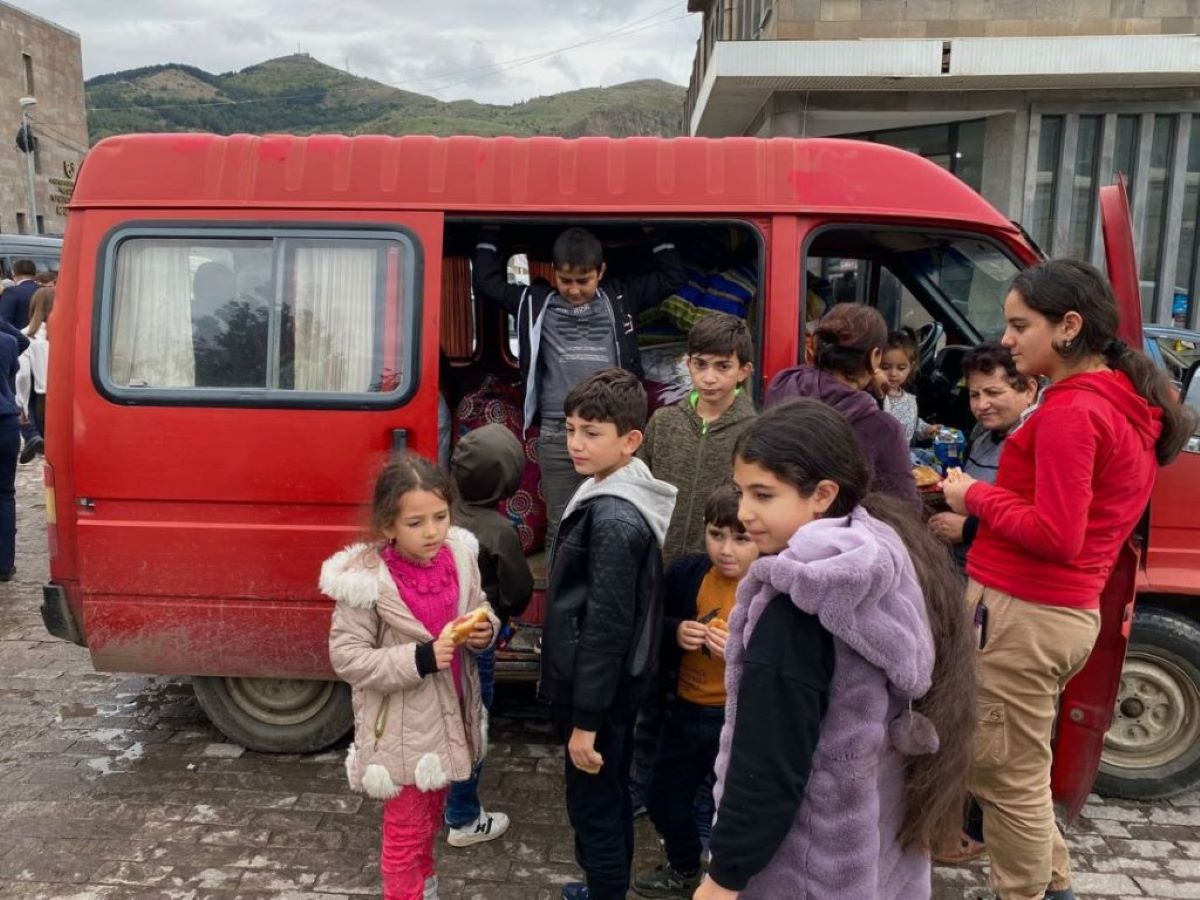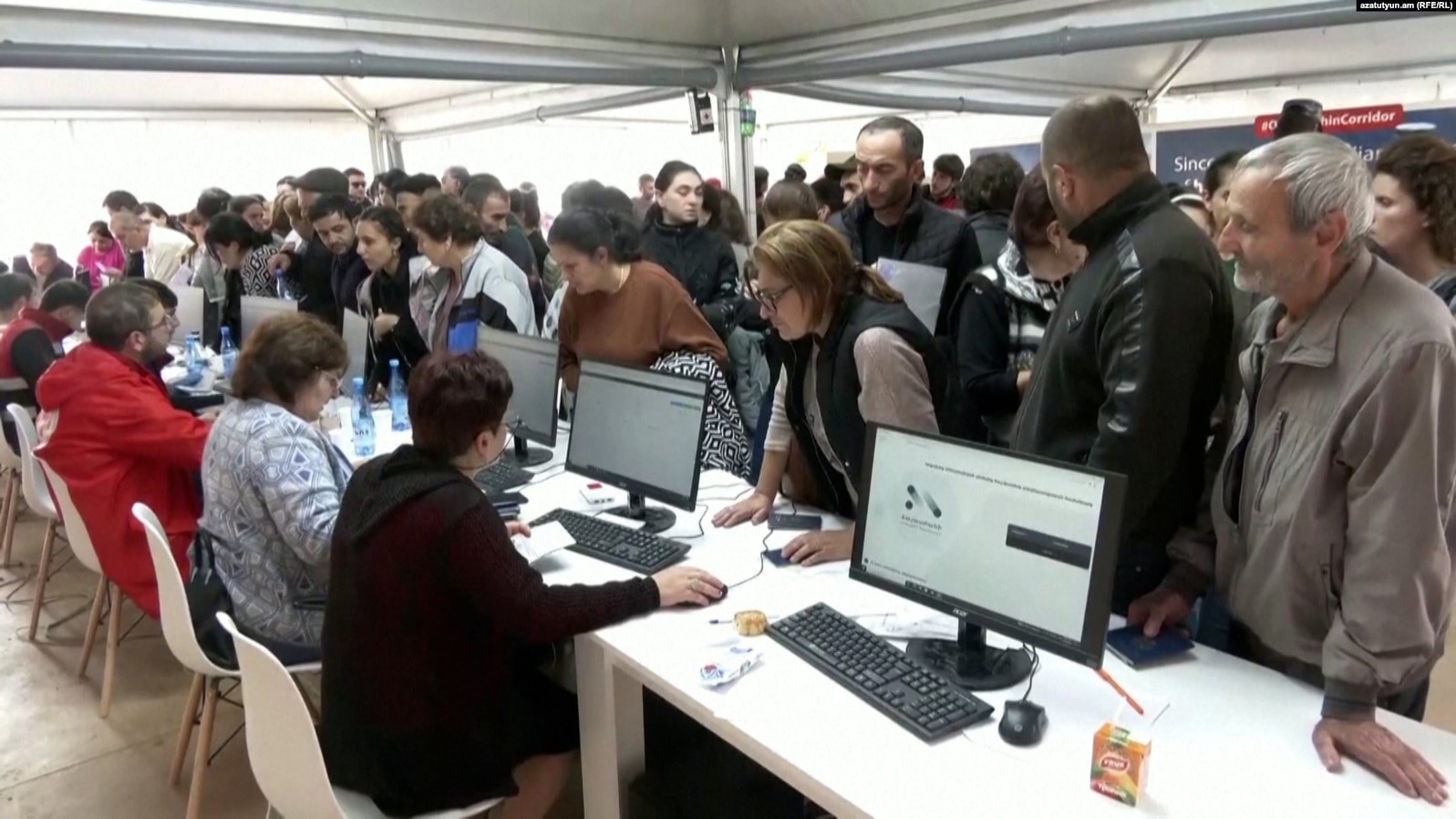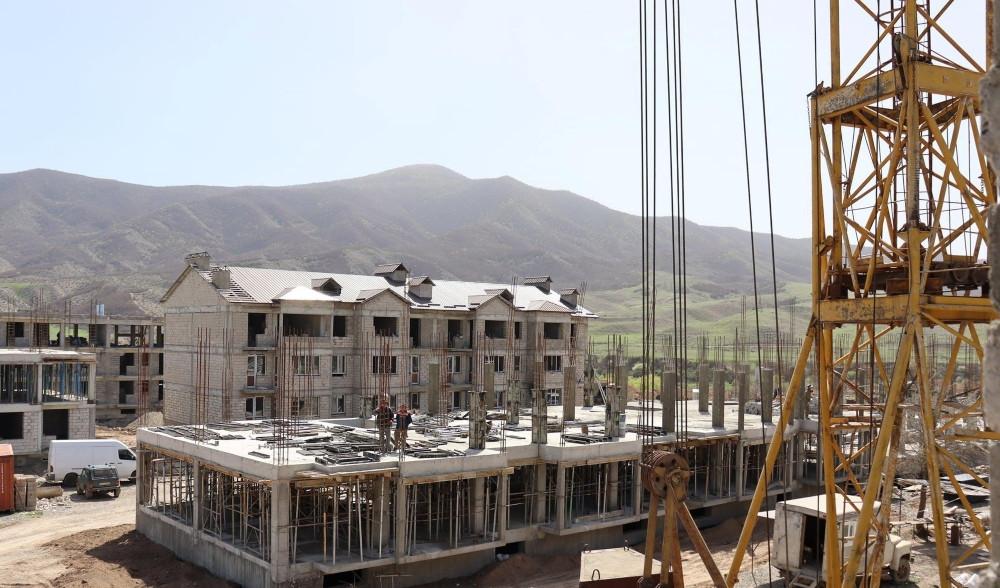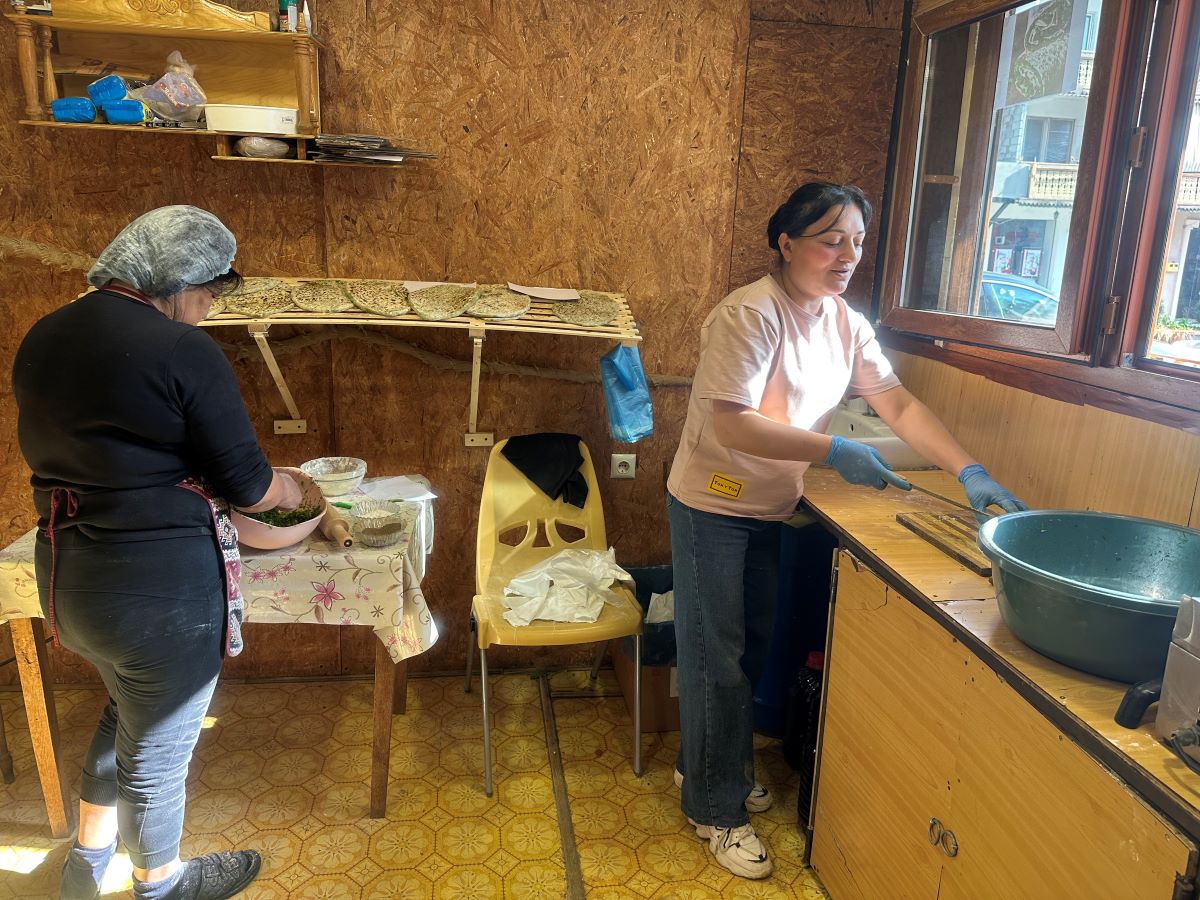Armenian government to launch additional aid programme for Karabakh Armenians
Armenian government’s aid programme for Karabakh Armenians
“Since October 2023, the Armenian government has allocated over 115 billion drams [more than $296 million] from the state budget for the social support of forcibly displaced persons from Nagorno-Karabakh,” said Deputy Prime Minister Tigran Khachatryan.
More than 100,000 people left their homes and relocated to Armenia following the September military operations in Nagorno-Karabakh. A range of support programmes has been launched to address their housing and social needs.
In an interview with the Public Broadcaster, Khachatryan stressed that international organisations have also provided financial assistance. However, 85–90 percent of the funding for these social programmes has come from the state budget.
The Deputy Prime Minister also addressed the termination of one of the aid programmes, which sparked public discontent and protests.
In addition, he announced the launch of a new support initiative and assured that the government is continuing its dialogue with the displaced from Nagorno-Karabakh in order to find acceptable solutions to the issues concerning them.
- Karabakh Armenians reject Armenian citizenship: fears and expectations
- A year after Armenians’ exodus from Nagorno-Karabakh: Current situation and perspectives from Yerevan
- Stories and memories of Karabakh Armenians
‘40+10’ programme will not be revised
In recent days, several protests by Karabakh Armenians have taken place — including a large rally on Freedom Square at the end of March and several demonstrations outside the government building. The displaced residents demanded that the conditions of the “40+10” programme not be changed. Under this scheme, each person has been receiving 40,000 drams ($103) per month for rent and an additional 10,000 drams ($25) for utilities.
Back in November 2024, the government had already intended to revise the programme’s terms. However, due to protests, the changes were postponed.
Now, the decision has been finalised: starting from April 2025, assistance will be provided only to vulnerable groups — namely children, pensioners, people with disabilities, and families who have lost a breadwinner.
Those eligible will receive:
- From April to June — 40,000 drams ($103) per month
- From July until the end of the year — 30,000 drams ($77) per month
According to Deputy Prime Minister Tigran Khachatryan, the programme has strayed from its original purpose. It was meant to cover rent specifically — but many, he says, now see it as indefinite social aid. This, in turn, is hindering the rollout of a long-term housing plan for displaced persons.
“People prefer to rely on this programme rather than join the long-term housing scheme. But under that programme, we’re offering families property ownership. We’re providing assistance of 3 to 4 million drams [$7,730–$10,300], or even 5 million drams [$12,880] per family member, so they can settle in a permanent place of residence,” he explained.
This long-term programme includes three options: a certificate to buy a flat or house, a certificate to build a private home, or assistance with repaying a mortgage loan. The only condition for receiving this support is Armenian citizenship. However, many Karabakh Armenians are hesitant. They fear that by accepting Armenian citizenship, they may lose the right to return home or reclaim property left behind.
Additional support programme launched
The new aid programme, says the Deputy Prime Minister, targets socially vulnerable families and was developed alongside changes to the “40+10” scheme. Its aim is to ease the burden on families who, after the programme’s revision, can no longer afford rent.
“The government has already decided to launch — alongside the revised programme — an additional support scheme. Under it, household income will be assessed to determine whether extra assistance is needed,” said Deputy Prime Minister Tigran Khachatryan.
He stated that under this new scheme, support will be offered to families whose per capita income is below 55,000 drams ($141).
In such cases, the family will receive:
- 40,000 drams — even if the person lives alone,
- plus an additional 10,000 drams for each family member.
“For example, if the total income of a four-person household is below 55,000 drams per person, that family will receive an additional 70,000 drams,” Khachatryan explained.
“Housing support programme offers favourable terms”
The Deputy Prime Minister rejects claims that the long-term housing programme doesn’t provide enough funds to buy a home.
“We’re offering 3, 4, or 5 million drams per family member, depending on where they plan to buy a flat or build a house,” he reminded.
He emphasised that families choosing to settle in border areas — specifically in certain communities of Syunik, Gegharkunik, Ararat and Vayots Dzor regions — will receive 5 million drams per family member. A new decision has raised support from 3 to 4 million drams for those settling in Vanadzor, Hrazdan, and Armavir.
According to Tigran Khachatryan, the programme’s terms are favourable, yet potential beneficiaries remain hesitant to act.
The Deputy Prime Minister reported that 900 families (around 3,800 people) have already received certificates allowing them to purchase or build a home:
“Of these 900 families, only 100 have exercised their right to use the certificate. The remaining 800 are still searching — and that’s a good thing. It means they’re taking time to find the best possible option for themselves.”
Government sees no need for additional funding efforts
The Council for the Protection of the Rights of Karabakh Armenians held a rally on Freedom Square on 29 March. It then proposed launching international fundraising initiatives to support displaced people. Deputy Prime Minister Tigran Khachatryan held a meeting with members of the council.
In his view, their expectations regarding the mobilisation of financial resources through such initiatives are overly optimistic.
“The government does not base its policy on such expectations. If we identify a problem that remains unresolved and could be addressed through the organisation of additional events or initiatives, of course we are open to that. But at this stage, we see no need for it,” he said.






















